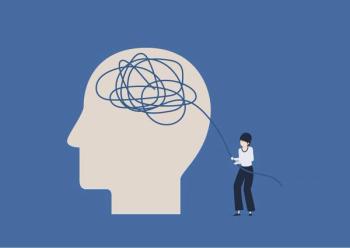
- Psychiatric Times Vol 36, Issue 8
- Volume 36
- Issue 8
Psychiatrists: The Luckiest People on Earth?
In a spirit of gratitude, here are eight of the many extraordinary advantages of being a psychiatrist.
Psychiatric practice is not for the faint of heart. Every day, psychiatrists face human misery, trauma, tragedy, suicidality, and death. People outside of the field (and even our own patients) frequently declare that they could not imagine being psychiatrists, because they would be “too depressed listening to that all day.”
Our work requires us to enter deeply into the painful experiences of others and to be with people who may have trouble being with anyone in a constructive way.
As we attempt to do so, we suffer impediments and harassments by various bureaucracies, including dwindling reimbursements, decreased time with patients, increased record-keeping requirements, and burdensome demands of specialty and other oversight boards. In short, we regularly interact with bureaucratic systems that pressure us to value money over health, screen time over face time, and record-keeping over people-helping.
Yet there is a reason that we become psychiatrists, and a reason that we remain in the field. For all its perils, psychiatry is filled with extraordinary moments of healing, honesty, insight, and human connection. With such a heady mix of costs and benefits, psychiatrists will always run the danger of being swamped by the negative as they seek to cultivate the positive.
As human beings, in fact as mammals, we are inherently prone to pay more attention to the bad than the good, and to demonstrate a
Conscious emphasis on the positive does not mean denial of the negative, as if a naive Pollyanna-like attitude constitutes self-actualization. Rather, by emphasizing the good, we more accurately balance positive and negative in our emotional and intellectual lives. Or, more fundamentally, by focusing on the positive, we help keep ourselves from sinking into an ocean of negativity.
And so, in a spirit of gratitude, here are a few of the many extraordinary advantages of being a psychiatrist.
External goods
US psychiatrists earn an
Helping others
A profound and inescapable aspect of a meaningful, happy life is the ability to contribute to the good of others. As psychiatrists, helping others is the essence of our jobs. This truth is so familiar that it often feels trivial when it is in fact profound.5 We enjoy a social role that is ultimately about doing good for our patients, their families, and our society, and we will see tangible results of our efforts in both the short and long term. By the end of a psychiatric career (and in spite of mistakes and limitations), countless people and their families will be better off because of our work.
Being needed
Nationally and worldwide, there is a vast shortage of psychiatrists that will not end in the foreseeable future. Wherever we go, we will be needed and valued. We do not need to worry about being able to find work and support ourselves. Better than that, as an individual psychiatrist, I can contemplate the fact that if I were not filling the need I now fill, there would not be anyone else to make up for it.
Being significant
Obviously, we matter as psychiatrists. Yet how many of us have considered the strange fact that people rearrange their lives, schedules, and finances, all to receive the privilege of sitting with us in a room and talking? Yes, they need medications, but realistically they can get medications elsewhere. They want to talk to us. They want to be heard, and they want to learn from our knowledge and wisdom. They actually believe (at least on some level) that time spent with us will make their lives better. This is extraordinary-after all, how many people in the rest of daily life approach us and offer us money for our sage advice, or re-arrange their day just to hear what we have to say about their lives? Do family members wait each day with bated breath for our words of wisdom? And yet there are people, every day, who commute, show up, sit, and wait just for the opportunity to talk to us, their psychiatrists.
Intellectual engagement
As we know, the human brain is the most complex object in the physical universe, bar none. Our job challenges us to understand the workings of the human brain and the human person on every level that we can, and to help people make use of this knowledge to live better lives. We help people understand and seek integration and healing on biological, psychological, social, and spiritual levels. Our patients teach us, our colleagues teach us, and every day new studies will come out to illuminate this most exquisite of all creations. We will never stop learning, and we need never be bored.6
Self-improvement
As a psychiatrist, whatever I learn applies to me. Every day, our work teaches us more about the human condition. We have access to the inner, intimate, and (generally) honest experiences of countless people, not the superficial Facebook-type self-advertising that goes on in much of our culture. Thus, we have a source of knowledge about the human condition that no one can better. And we have a daily motivator to practice our own self-care, self-improvement, and growth. As we understand our patients more deeply and help them, we simultaneously learn to understand and help ourselves.
Self-esteem
People who spend large amounts of time on
Love
I consider love to be the “L-word” of our profession. We don’t often use it with patients, for obvious reasons. But psychiatrists create constructive relationships as the fundamental basis of their work. We are formally trained to do so, even with the most difficult patients. Though extreme levels of patience and skill are sometimes required, achieving such good and meaningful relationships is among the greatest joys of life. Better than most other professionals, psychiatrists understand that
“Life is pain,” declares Dread Pirate Roberts in The Princess Bride. “Anyone who tells you differently is selling something.” If that is true, then thank goodness for psychiatry. And thanks to those who practice it. Because of them, human life is a little bit less painful.
Dr Morehead is a psychiatrist in private practice, and former Assistant Residency Director at the Karl Menninger School of Psychiatry. He is board certified in General Psychiatry (ABPN) and Neuropsychiatry (UCNS), maintaining interests in neuroscience, psychotherapy, spirituality, and advocacy for mental illness.
This article was originally published on 6/11/2019 and has since been updated.
References:
1. Rozin P, Royzman EB.
2. Gottman JM, Coan J, Carrere S, Swanson C.
3. Peckham C. Medscape Psychiatrist Compensation Report 2018. Medscape. April 18, 2018.
4. Ryan RM, Deci EL.
5. Peterson C, Park N, Seligman ME.
6. Waterman AS.
7. Appel H, Gerlach AL, Crusius J.
8. Helliwell JF, Putnam RD.
Articles in this issue
over 6 years ago
Children Who Ask to Become Suicide Bombersover 6 years ago
The Passing of a Matriarchover 6 years ago
Caffeine: Neurobiological and Psychiatric Implicationsover 6 years ago
Making Your Practice Work for Youover 6 years ago
Polypharmacy: A Challenge for Community Psychiatristsover 6 years ago
Opioid Use in Pregnancy Affects Offspring Across Childhoodover 6 years ago
All the World’s NotesNewsletter
Receive trusted psychiatric news, expert analysis, and clinical insights — subscribe today to support your practice and your patients.







